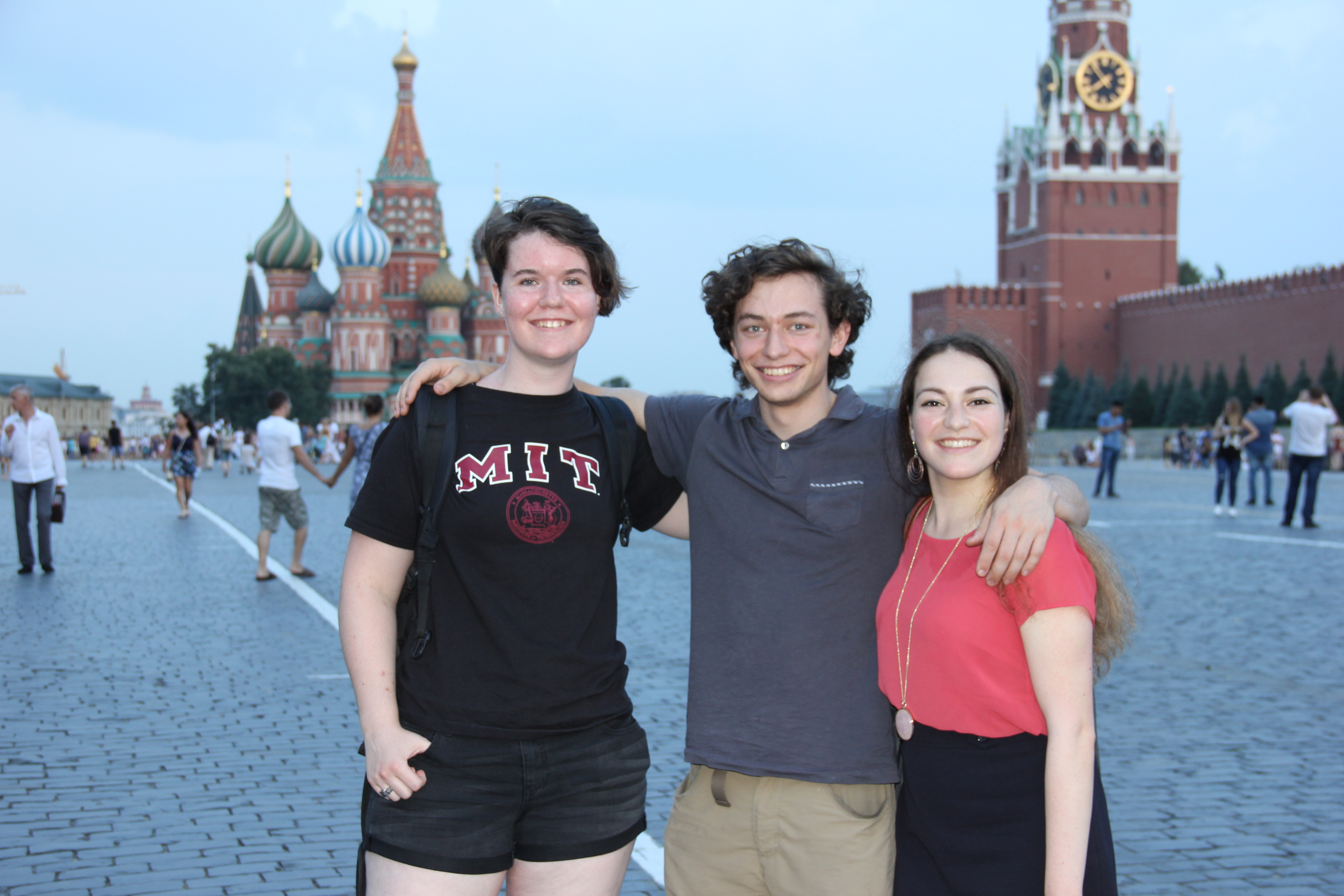- November 15, 2021
Leah Goggin (Computer Science ’18) left for her internship at the Nuclear Research University (MEPhI) in Moscow with little idea of what to expect and ended up learning about everything from Python to geopolitics.
The inherently cross-disciplinary nature of MISTI was a totally unique experience that changed her prospective academic path and her outlook on both America and the rest of the world.
INTERNSHIP PROJECT: SOFTWARE FOR A LASER INTERFEROMETER
Leah’s task for the summer was to write the software for a laser interferometer being developed by the University’s Laser Physics Lab. The software allows the user to load an image containing the interference pattern generated by the interferometer, calibrate it, apply a noise filter, and specify constants and other information. The code then automatically traces the fringes, records their displacement from their initial zero-velocity position, and converts fringe shift to velocity using known constant factors.
BIGGEST CHALLENGES
The biggest challenge was the language barrier, Leah admits: “If my Russian had been slightly worse when I arrived, I have no idea how I would’ve found my way to the meeting point with my host. I had trouble with my SIM card, and it turns out you need a phone number to use the metro wi-fi so I had absolutely zero ability to communicate or even use Google translate while I was finding my way from the airport to MEPhI.” Leah adds, “I would definitely advise future MISTI students to not take communication with their host once they land for granted – have an airtight plan for where and when to meet, know how to get there, and know what to do if they’re running really late.”
Leah found that the main cultural differences between Russia and the U.S. were in how people dressed and played gender roles. She shares, “My lab itself was very casual, but on the street, especially near the center of the city, I felt pretty underdressed. I got some very weird looks working out in the park.”
More importantly, this summer experience made her a little better at going with the flow and accepting that sometimes she’s going to be the person in the way or holding up the line. “Relatedly, I’ve gained a lot of sympathy for people who are far from home and don’t know the language and how to get around,” Leah adds.
“To describe what I’ve gotten out of MISTI, the first thing that comes to mind is ‘perspective’,” Leah says. “I think my perception of everything from geopolitics to the relationship between individual people and policy has gotten more nuanced, and my sense of what America is in the context of the rest of the world has changed.”
LEAH’S TOP ADVICE FOR FUTURE MISTI RUSSIA INTERNS
#1. I ordered 10 thousand rubles (about $150) from Bank of America before leaving the U.S. and was very happy I did.
#2. I’m happy I brought: Aleve, melatonin, scissors, tape and power outlet converter.
#3. Buying things like speakers, a small fan, and a small lamp aren’t too expensive, but do it early so you have them the whole time.
#4. Don’t trust your phone to know what time zone it’s in, especially for setting alarms.
#5. You’ll run into people who sorta-kinda speak English. Speaking slowly and clearly obviously helps, but a good rule of thumb is to not say anything you wouldn’t easily know how to say in Russian.
#6. To change subway lines, look for the blue sign with a little dude on stairs. The big colored arrow on the wall lists where the train on that track goes, and the list of stations under each station on the arrow is where you can switch to from there.
#7. The only reliably good coffee is Kofe Haus and Shokoladnitsa, which also might have an English menu if you ask, or just say something in English and look sufficiently confused. You have to pay extra for cream, so ask before you pay.
#8. Major streaming services don’t work, although I’m told Spotify works if you already have an account. Be aware of that.
Also read: "I can see Russia from my lab" in the Tech
